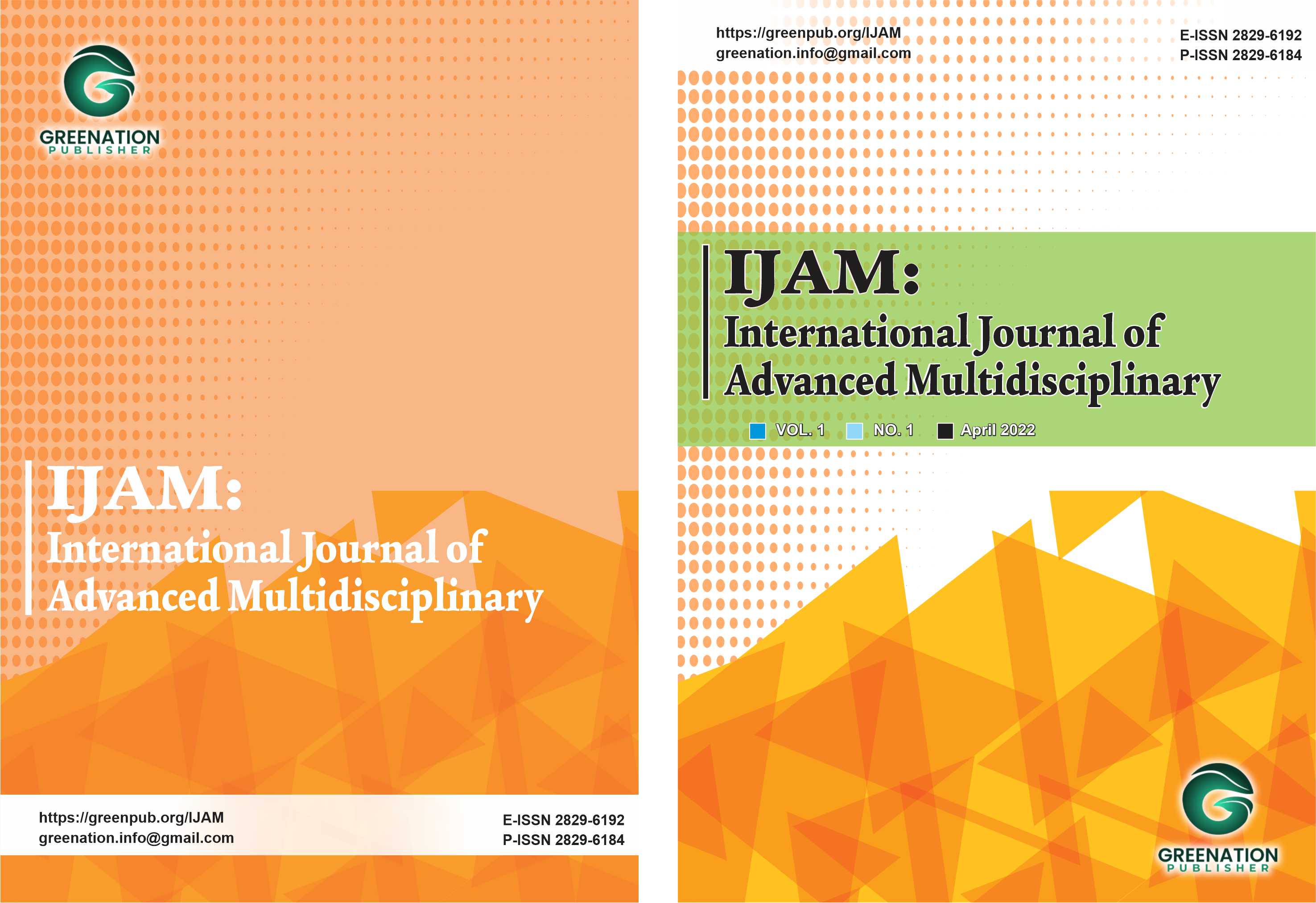Understanding the Financial Dynamics of SMEs: The Impact of Literacy, Inclusion, and Education on Financial Behavior in Small Food Stall Businesses in Bekasi Regency
DOI:
https://doi.org/10.38035/ijam.v2i4.469Keywords:
SMEs, financial literacy, financial inclusion, education, financial behavior, small food stalls, Bekasi RegencyAbstract
This research explores the intricate financial dynamics of Small and Medium-sized Enterprises (SMEs) by investigating the influence of financial literacy, financial inclusion, and education on the financial behavior of small food stall businesses in Bekasi Regency. The study confirms that financial literacy significantly and positively affects the financial behavior of food stall entrepreneurs, emphasizing its role in effective financial management. Financial inclusion also plays a pivotal role, with a positive correlation between access to financial services and favorable financial behavior, though disparities in utilization exist. Moreover, education exhibits a significant positive influence on financial behavior, highlighting the benefits of higher education levels among entrepreneurs. In conclusion, this study underscores the importance of enhancing financial literacy and inclusion initiatives for SMEs to promote sound financial practices and informed decision-making. These insights are valuable for policymakers, financial institutions, and SME support organizations seeking to foster the growth and sustainability of small businesses in the region.
References
Aini, N. (2016). Pemerintah Dorong UKM Berbasis Pendidikan Tinggi. Republika.Co.Id. https://www.republika.co.id/berita/nasional/umum/16/08/27/ock85c382-pemerintah-dorong-ukm-berbasis-pendidikan-tinggi
Aji, E. M., Aziz, A., & Wahyudi. (2020). Analisis Perilaku Keuangan Pada Pelaku UMKM di Desa Pagedangan Tangerang. Prosiding Biema, 1, 75–89.
Aribawa, D. (2016). Pengaruh Literasi Keuangan Terhadap Kinerja Dan Keberlangsungan Umkm Di Jawa Tengah. Jurnal Siasat Bisnis, 20(1), 1–13.
Chen, H., & Volpe, R. P. (1998). An Analysis of Personal Financial Literacy Among College Students. Financial Services Review, 7, 107–128. https://doi.org/10.3788/CJL201643.0811001
Eniola, A. A., & Entebang, H. (2015a). Financial literacy and SME firm performance. International Journal of Research Studies in Management, 5(1). https://doi.org/10.5861/ijrsm.2015.1304
Eniola, A. A., & Entebang, H. (2015b). SME Firm Performance-Financial Innovation and Challenges. Procedia - Social and Behavioral Sciences, 195, 334–342. https://doi.org/10.1016/j.sbspro.2015.06.361
Ghozali, I., & Latan, H. (2015). Partial Least Square Konsep, Teknik, dan Aplikasi Menggunakan Program SmartPLS 3.0 (2nd ed.). UNDIP.
Hamid, R. S., & Anwar, S. M. (2019). Structural Equation Modeling (Sem) Berbasis Varian: Konsep Dasar dan Aplikasi dengan Program SmartPLS 3.2.8 dalam Riset Bisnis (Abiratno, S. Nurdiyanti, & D. A. Raksanagara (eds.)). PT.Inkubator Penulis Indonesia.
Harahap, D. N., & Lubis, S. D. (2019). Metode Penelitian Kuantitatif.
Imtihan, & Nazaruddin. (2017). Analisis Tingkat Pendidikan dan Pendapatan Dalam Upaya Pengembangan UMKM di Padang. Economac, 1(1).
KEMENKOPUKM. (2021). Kemenkopukm Susun 6 Indikator Strategis Adaptasi Dan Transformasi Kumkm. https://www.kemenkopukm.go.id/read/kemenkopukm-susun-6-indikator-strategis-adaptasi-dan-transformasi-kumkm
Kumparan. (2021). Inklusi Keuangan Makin Penting di Situasi Pandemi. https://kumparan.com/alia-karenina/inklusi-keuangan-makin-penting-di-situasi-pandemi-1vXlXsdJglD/full
Laily, N. (2016). Pengaruh Literasi Keuangan Terhadap Perilaku Mahasiswa Dalam Mengelola Keuangan. Journal of Accounting and Business Education, 1(4). https://doi.org/10.26675/jabe.v1i4.6042
Latifiana, D. (2016). Studi Literasi Keuangan Pengelola Usaha Kecil Menengah ( Ukm ). 1–7.
Masdar, R., & Zaiful. (2011). Perencanaan keuangan komunitas miskin di perkampungan vatutela. Jurnal Academia Fisip Untad, 03(01), 615–624.
Mendari, A. S., & Kewal, S. S. (2013). Tingkat Literasi Keuangan Di Kalangan Mahasiswa Stie Musi Anastasia Sri Mendari & Suramaya Suci Kewal. Jurnal Economia, 9(2), 130–140.
Nainggolan, E. (2020). UMKM Bangkit, Ekonomi Indonesia Terungkit. https://www.djkn.kemenkeu.go.id/artikel/baca/13317/UMKM-Bangkit-Ekonomi-Indonesia-Terungkit.html
Nugroho, Y., & Negara, S. D. (2020). COVID-19’s Impact on Micro, Small, & Medium Enterprises and Tourism in Indonesia. ISEAS Yusof Ishak Institute, 124, 1–11.
Pinem, D., & Mardiatmi, B. D. (2021). Analisis Literasi Keuangan, Inklusi Keuangan Dan Pendapatan Terhadap Perilaku Pelaku Umkm Di Depok Jawa Barat. Jurnal Ilmiah Indonesia, 6(1), 104–120. http://dx.doi.org/10.36418/syntax-literate.v6i1.1650
Prihastuty, D. R., & Rahayuningsih, S. (2018). Pengaruh Financial Literacy, Financial Behavior, Financial Attitude, Dan Demografi Terhadap Perilaku Konsumtif ( Studi Pada Mahasiswa Strata I Fakultas Ekonomi Universitas 17 Agustus 1945 Surabaya ). 03(02).
Sadalia, I., Syahyunan, & Butar Butar, N. A. (2017). Financial Behavior and Performance on Small and Medium Enterprises in Coastal Area of Medan City. 1st Annual Applied Science and Engineering Conference, 180. https://doi.org/10.1088/1757-899X/180/1/012257
Sujarweni, V. (2018). Literasi Keuangan UMKM Berbasis Desa. Jurnal MONEX, 07, 305–311.
Suroso, G. ., & Widyaiswara. (2015). Masyarakat Ekonomi Asean (MEA) dan Perekonomian Indonesia. https://irwin2007.wordpress.com/2015/11/10/masyarakat-ekonomi-asean-mea-dan-perekonomian-indonesia/
Susanti, A., & Dkk. (2017). Tingkat Pendidikan, Literasi Keuangan, Dan Perencanaan Keuangan Terhadap Perilaku Keuangan Umkm Di Surakarta. Telaah Bisnis, 18(1), 45–56.
Syahrum, & Salim. (2012). Metodologi Penelitian Kuantitatif. In Metodologi Penelitian Kuantitatif.
Yanti, W. I. . (2019). Pengaruh Inklusi Keuangan Dan Literasi Keuangan. Jurnal Manajemen Dan Bisnis, 2(1).
Yushita, N. A. (2017). Pentingnya Literasi Keuangan Bagi Pengelolaan Keuangan Pribadi. Nominal?:Barometer Riset Akuntansi Dan Manajemen, VI(’), 15.
Downloads
Published
How to Cite
Issue
Section
License
Copyright (c) 2024 Naseha Elkarima, Muammar Khaddafi, Daniel, Desi Efna, Kemistia Eva, Liza Rickiany, Poppy Dewi Anggraeni, Nopy Andrian, Syaidil Abyadi

This work is licensed under a Creative Commons Attribution 4.0 International License.
Authors who publish their manuscripts in this journal agree to the following conditions:
- The copyright on each article belongs to the author(s).
- The author acknowledges that the International Journal of Advanced Multidisciplinary (IJAM) has the right to be the first to publish with a Creative Commons Attribution 4.0 International license (Attribution 4.0 International (CC BY 4.0).
- Authors can submit articles separately, arrange for the non-exclusive distribution of manuscripts that have been published in this journal into other versions (e.g., sent to the author's institutional repository, publication into books, etc.), by acknowledging that the manuscript has been published for the first time in the International Journal of Advanced Multidisciplinary (IJAM).






















